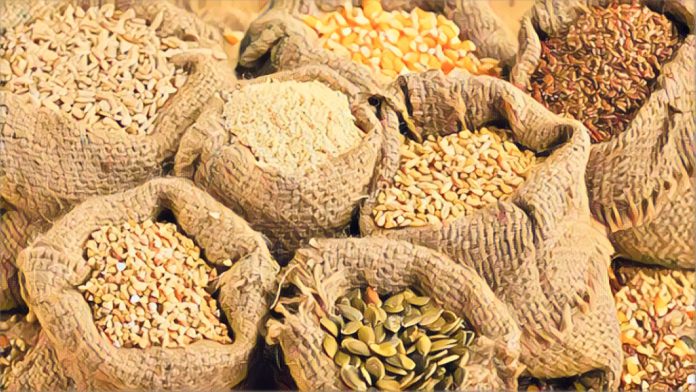Nigeria, the most populous nation in Africa, is on the brink of a food crisis. A recent report by AFEX, a leading commodities exchange in the country, predicts a significant surge in the prices of staple foods such as rice, maize, soya beans, and sorghum for the 2023/2024 season.
The report unveiled at a hybrid event in Abuja on November 16, 2023, provides an in-depth analysis of the production, price performance, and market dynamics of six key commodities during the 2022/2023 season. It also offers forecasts for the upcoming season.
Several factors contribute to the anticipated price hike:
- Production decline: An average drop of 11.5 per cent in the production of maize, rice, soya bean, and sorghum was observed in the 2022/2023 season due to flooding, low fertiliser usage, and insecurity. A further decline of 2 per cent for maize and soya bean and 4 per cent for rice and sorghum is projected for the 2023/2024 season.
- Demand surge: Both domestic and international markets continue to demand these commodities, particularly for processing and export purposes. A 10 per cent increase in demand for maize and soya bean and a 15 per cent increase for rice and sorghum is expected in the next season.
- Logistics costs: High transportation costs, resulting from inadequate and inefficient road infrastructure, significantly impact commodity prices. Logistics costs accounted for 30 to 40 per cent of the final prices of commodities in the 2022/2023 season, a trend likely to continue into the next season.
- Naira devaluation: The depreciation of the Nigerian currency increases the cost of imported inputs and reduces consumer purchasing power. The naira lost 18 per cent of its value against the US dollar in the 2022/2023 season, with a further decline of 10 per cent anticipated in the 2023/2024 season.
The report warns that the escalating food prices could exacerbate Nigeria’s food insecurity situation. The country currently ranks 109th out of 125 countries on the Global Hunger Index, indicating a severe level of hunger. The National Bureau of Statistics data shows that food inflation reached a record high of 30.64 per cent in September 2023.
In terms of specific commodities, the report predicts that the price of paddy rice will surge by 32 per cent from NGN353,000 per metric ton in the 2022/2023 season to NGN480,000 to NGN500,000 per metric ton in the 2023/2024 season. Similarly, the price of maize is expected to rise by 5 per cent from NGN370,000 per metric ton in the 2022/2023 season to NGN380,000 per metric ton in the 2023/2024 season. The price of soybean is forecasted to increase by 18 per cent from NGN355,000 per metric ton in the 2022/2023 season to NGN390,000 and NGN420,000 per metric ton in the 2023/2024 season.
The report calls for urgent measures to address these challenges. These include improving access to finance, inputs, extension services, and markets for smallholder farmers, investing in infrastructure, technology, and innovation, and enhancing policy and regulatory frameworks.
Stakeholders are urged to adopt a forward-thinking approach to ensure the sustainability and resilience of the food system in the face of climate change, global shocks, and social-political uncertainties.
Despite these challenges, the report concludes on a hopeful note. It suggests that Nigeria has the potential to achieve food security and become a net exporter of food commodities by harnessing its abundant natural and human resources and leveraging opportunities in the commodities market.
Source: Business Day



